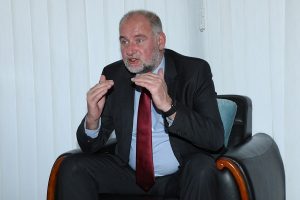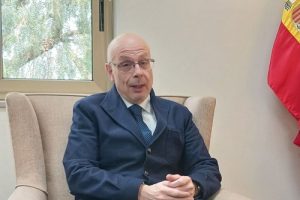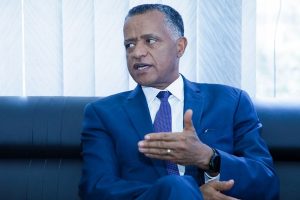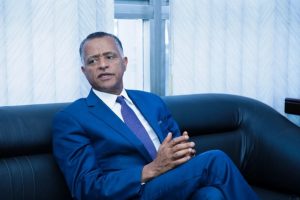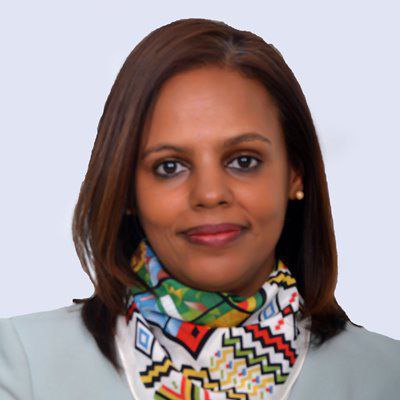
As the world becomes increasingly entangled with the issue of climate change, the global de-carbonization agenda has become a high priority. At the heart of the de-carbonization agenda is the contribution Africa would make through its vast mineral resources, especially lithium, tantalum, and more. Along with increasing the level of mineral exploration in the continent by at least 6 times, ensuring the safety and benefits of the continent and its population is equally important. Efforts need to be made to put proper policy tools and commitment in place to ensure that the continent maximizes its mineral resources without compromising environmental safety and ensuring the long-term sustainability of its economic development.
The African Mineral Development Center (AMDC) is an organ of the African Union (AU) responsible for coordinating and overseeing the implementation of the Africa Mining Vision and its Action Plan (currently being revised). This is to enable the mineral resource sector to play a role in the social and economic transformation, inclusive growth, and sustainable development of African economies, in collaboration with Member States, Regional Economic Communities (RECs), the private sector, civil society organizations (including women and youth organizations), collaborating institutions, and other key stakeholders. Today’s guest on The Ethiopian Herald is Dr. Marit Yayehyirad Kitaw, the interim director of AMDC.
Ms. Marit Kitaw, PhD is Interim Director of the African Minerals Development Center (AMDC), Specialized Agency of the African Union, dedicated to implementing the Africa Mining Vision (AMV). She has extensive experience as Chief Technical Advisor on Extractives Industries for Sustainable Development at UNDP Mozambique, as Economist leading the Minerals portfolio in UNECA, and in COMESA, AfDB, and US’ Institute of World Affairs. As AMDC’s founding staff, she contributed to major implementing tools on Africa’s minerals for development. Dr. Marit Kitaw currently represents the African Union in the United Nations Secretary General Panel on Critical Energy Transition Minerals. She is also in the 2025 Advisory Board of the Mining Indaba. She received a Ph.D in Economics from the University of Nice/ Sophia-Antipolis in France, and an MBA in Leadership and Sustainabillity from the University of Cumbria, UK.
The Ethiopian Herald interviewed Dr. Marit about Africa’s role in the global de-carbonization agenda and how the center is assisting member states in formulating suitable policy frameworks for the proper utilization of the continent’s mineral resources. Enjoy reading!
Could you please explain to me why Africa is mostly associated with mineral development, even after 60 years of independence? The main focus has been on unlocking Africa’s potential through minerals. Can you shed some light on this?
Yes, in Africa, we hold 30% of the global mineral reserves. The reason minerals are currently at the forefront is due to the de-carbonization agenda. With the energy transition that the world requires, there is a need for 6 times more exploration and exploitation to bridge the gap. This de-carbonization agenda specifically requires critical minerals, also known as green minerals, which are essential for technologies like solar panels, battery storage, and wind turbines. Many of these minerals are found in Africa – for example, 70% of cobalt is found in the DRC, lithium in Zimbabwe, and others in Ethiopia. Ethiopia is an emerging player in the critical minerals market, with untapped potential in gold, potash, tantalum, and more. There is a significant need for exploration in Ethiopia to fully utilize these resources.
The interest in these minerals has grown due to the increasing demand for lithium, graphite, cobalt, and manganese in southern Africa for battery production, particularly for electric vehicles. We also emphasize value addition, such as in the gemstone industry in Ethiopia, where gemstones are transformed into jewelry, involving women in small-scale mining. Our main goal at the AMDC is to ensure that African countries benefit from their mineral wealth, as historically, mining has not significantly improved the lives of the people. We have concrete strategies in place, such as the African Green Mineral Strategy and the Africa Mining Vision, to ensure that these resources are utilized effectively.
We work closely with countries in regions like southern Africa and Eastern Africa to implement these strategies, as often good policies and frameworks are in place but not effectively implemented. By collaborating with regional bodies like the East Africa Community and IGAD, we aim to create a larger market and ensure that African countries work together to transform the lives of their people through mineral resources.
As you mentioned, the world needs to explore six times more than the current level. To what extent is Africa prepared for this significant increase in demand for exploration?
That is an excellent question, and that is precisely why we are here to advise countries on how ready they need to be compared to others who are already well-prepared. They have plans in place for acquiring and supplying raw materials, among other things. The main goal of our Center is to ensure that countries are adequately prepared with the right policies, strategies, and negotiation skills, as mining companies often possess more knowledge and information than the countries they operate in. We assist in negotiating contracts to ensure fairness and readiness.
There is an information asymmetry between these companies and the countries they operate in, so we aim to bridge that gap. It is crucial for countries to have strong institutions, transparency, and good governance, rather than solely relying on leadership changes. Focus should also be placed on acquiring the necessary skills, technology, and policies. Our focus is on making African countries ready for these challenges.
As a stakeholder, what is AMDC doing to close the gaps in technical and policy-related matters?
At the African Development Center, we conduct assessments. We have the African Minerals Governance Framework to evaluate their policies, strategies, implementation, value chain, and linkages. We examine how they allocate revenue from the mineral sector, focusing on whether they reinvest in productive sectors or not. This is crucial to prevent illicit financial flows. We provide technical assistance and support, leveraging our partnerships with organizations like the African Development Bank and ECA. By pooling our resources and expertise, we work towards our common goal of advancing Africa’s mineral development. This collaboration extends to other jurisdictions that align with our strategy, ensuring clarity and progress in our efforts.
How can you participate in our system or at your Center?
First of all, we need to have the statutes of the African Mines Development Center ratified. Currently, we only have four ratifications, but we need 15 for it to become effective and operationalized. Unfortunately, Ethiopia is not one of the countries that has ratified it yet. Therefore, we are making an appeal for more ratifications. Once you ratify and give us the mandate, we will have the sustainability we need. Currently, we rely heavily on other donors to advance our agenda, which is not sustainable in the long run, despite having a strategy in place.
We need African countries to ratify our statute so that we can provide further assistance. We have tools like the African mining governance framework that we use to assess and provide technical assistance and support. We offer training, skills development, and other implementation tools to enhance countries and ensure they are part of the value chain. It’s not just the Ministry of Mines involved, but also the Ministry of Industry, the environment, and gender considerations. We take a holistic approach to the value chain perspective.
Even without full ratification, we sometimes proceed when we see demand. We are also involved in the gemstone value chain, as mentioned by the association. Due to our connections in artisanal scale mining, we work extensively in this area, including in Ethiopia. We focus on the value chain of gemstone jewelry to add value. Exporting raw gemstones brings minimal profit, but when processed and sold in places like Dubai, the profits increase significantly. We aim to address these issues, especially for the miners who may not have access to sophisticated equipment.
Proper utilization of mineral resource in Africa is a very important issue along with other relates matters. These kinds of things need to be regulated. In what way does your Center assist governments?
This is why we were created, because of the so-called resource curse. Resources are not a curse on their own, it is how they are governed, or the governance system. The policy looks at the whole value chain, not just exporting raw materials and exporting everything without any revenue coming back. Our main reason for existence is to avoid the resource curse. In the 15 years of the African Mining Vision, most countries, like the top 20 producing countries, have had reforms somewhat aligned with the principles of the AMDC. However, we still don’t see transformed lives, except for examples like Botswana and Namibia. Some countries have ensured that they have benefited the people, but most are not where we want them to be. That’s why we are pushing with our strategies and working with countries and regions to implement those strategies to avoid the resource curse.
Are mineral resources finite or renewable? What is the way forward for the future of Africa after exploiting all these resources?
That’s a very good question. Circular economy is important. If we don’t make use of them now, they won’t be available for the future. We advocate for a Wells fund for the next generation and circularity. For example, if you have an abundant mine, you can use it for 20 years and then rebuild it to add value. Mining essentially moves the Earth, so it needs to be returned. We advocate for mine closure parks and circularity. Western countries assist with recycling, but we need more focus on value addition to create prosperity for the people. Green industrialization is important, focusing on using water efficiently and reducing CO2 emissions. It needs to be done collectively in a circular economy.
Thank you
It is my pleasure
BY ZEKARIAS WOLDEMARIAM
THE ETHIOPIAN HERALD SATURDAY 22 JUNE 2024


